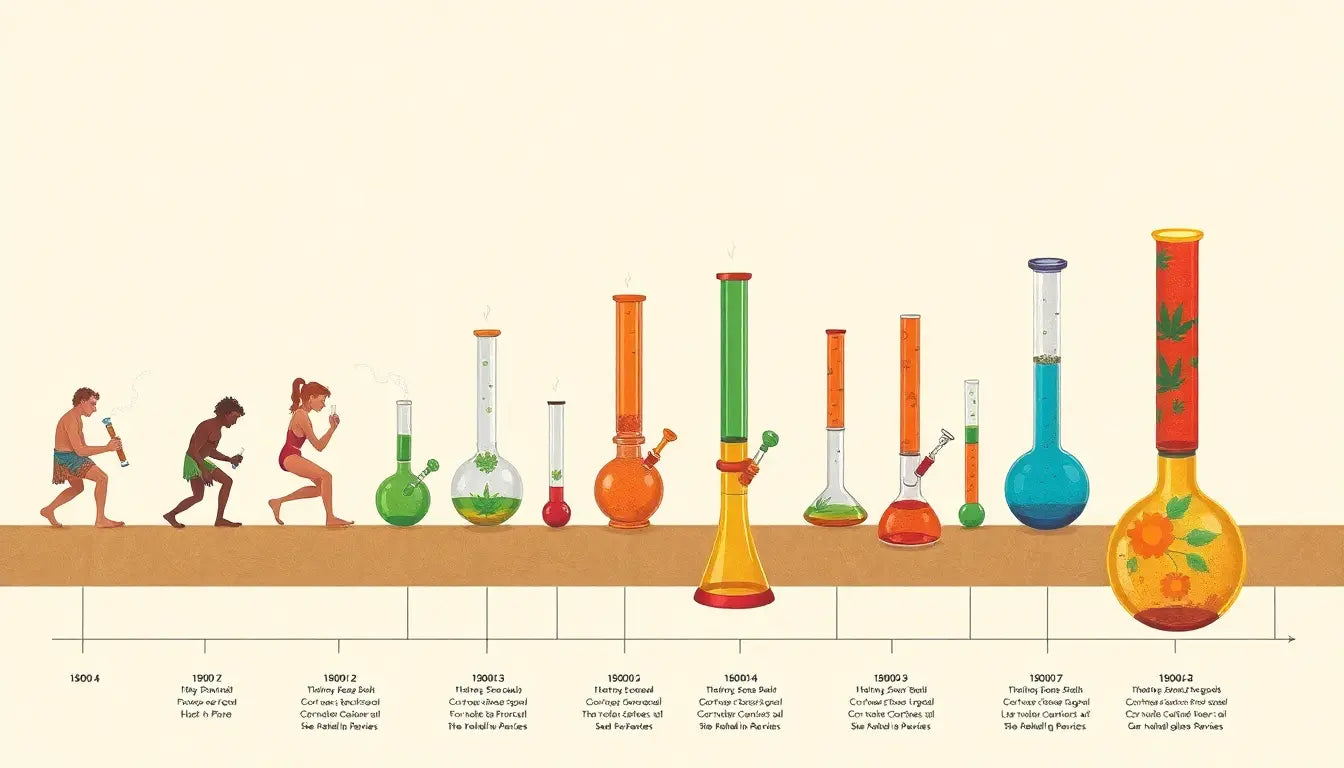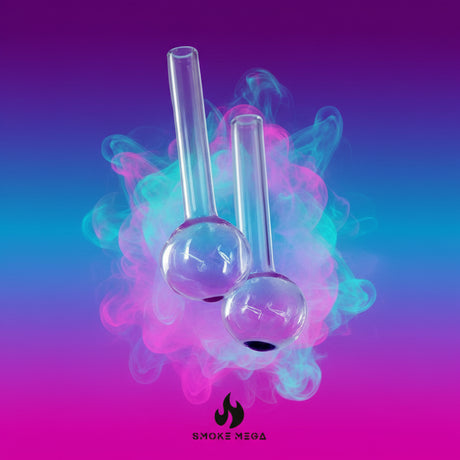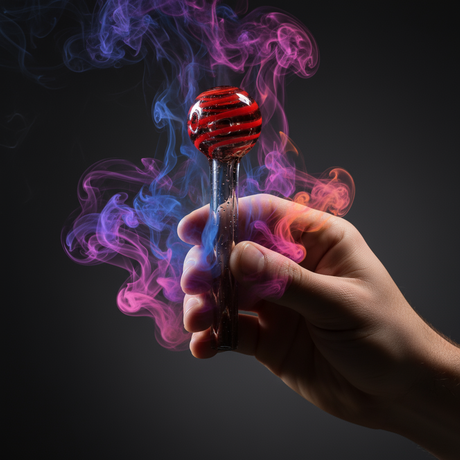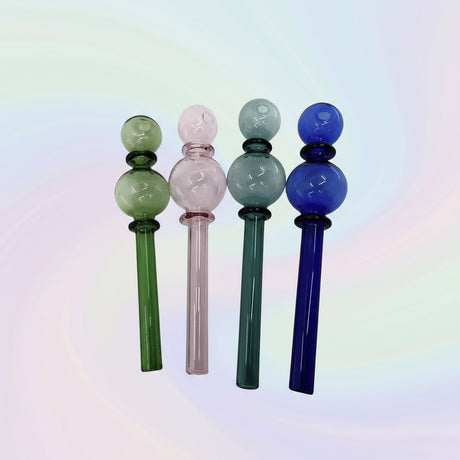Recent Posts
Quartz Banger vs. Traditional Dab Nail: Which Should You Buy?
Published on November 22, 2025
The Ultimate Thanksgiving & Friendsgiving Gift Guide: Perfect Picks for Every Budget
Published on November 12, 2025
Cyber Monday Steals: Top Bongs, Dab Rigs, and Oil Burners for the Best Value
Published on November 12, 2025
The Ultimate Black Friday Stocking Stuffer Guide (Awesome Gifts Under $30)
Published on November 12, 2025
Your Go-To Online Smoke Shop: Discover Top Bongs & Dab Rigs for Effortless Hits
Published on October 03, 2025
Top 3 Nectar Collectors For Sale In The USA
Published on July 20, 2025
The Evolution of Smoking: A History of the Bong

SmokeMEGA |
The act of smoking has been a part of human culture for thousands of years, with various tools and methods evolving over time to facilitate this practice. One of the most iconic and enduring smoking devices is the bong, a water pipe that has become synonymous with the recreational use of cannabis and other herbal substances.
In this comprehensive blog post, we will explore the rich history and evolution of the bong, tracing its origins, cultural significance, and the technological advancements that have shaped its design and functionality over the centuries.
The Origins of the Bong
The earliest known precursors to the modern bong can be traced back to ancient civilizations, where various forms of water pipes were used for ceremonial and recreational purposes. The term "bong" itself is believed to have originated from the Thai word "baung," which referred to a type of bamboo water pipe used in Southeast Asia.
Similar water-based smoking devices have been documented in various cultures around the world, including the hookah of the Middle East, the chillum of India, and the calabash of Africa. These early iterations of the bong were often crafted from natural materials such as bamboo, gourds, and ceramics, and were used to filter and cool the smoke, enhancing the overall smoking experience.
The Bong in Ancient Cultures
One of the earliest known examples of a bong-like device was discovered in the Pazyryk tombs of Siberia, dating back to the 4th century BCE. These ancient water pipes were used by the Scythian people, a nomadic group known for their sophisticated metalworking and textile production.
In ancient China, the use of water pipes for smoking was documented as early as the 2nd century BCE. These devices, known as "shuǐ-dāo," were often elaborately decorated and were used for both recreational and medicinal purposes.
Similarly, the ancient Egyptians and Greeks were known to have used water pipes for smoking various herbs and substances, including cannabis and opium. These early water pipes were often made of clay or bronze and were sometimes adorned with intricate designs and symbols.
The Bong in Modern Times
As the use of cannabis and other herbal substances became more widespread in the 20th century, the bong underwent a significant transformation, evolving from a simple water pipe to a highly sophisticated and customizable smoking device.
The Rise of the Counterculture
In the 1960s and 1970s, the bong became closely associated with the counterculture movement, particularly in the United States. As the use of cannabis and other psychoactive substances became more prevalent, the bong became a symbol of the counterculture's rejection of mainstream societal norms and its embrace of alternative lifestyles.
During this period, the bong underwent numerous design innovations, with glass blowers and artisans creating increasingly elaborate and intricate water pipes. The use of borosilicate glass, a highly durable and heat-resistant material, allowed for the creation of bongs with complex percolation systems, intricate designs, and a wide range of functionalities.
The Bong in the 21st Century
In the 21st century, the bong has continued to evolve, with advancements in materials, technology, and design. The rise of the internet and the global marketplace has made it easier for bong enthusiasts to access a wide range of high-quality and innovative smoking devices.
Today, bongs come in a vast array of shapes, sizes, and materials, from sleek and minimalist designs to intricate and ornate pieces that are considered works of art. The use of advanced materials, such as silicone and quartz, has also led to the development of more durable and functional bongs, with features like removable bowls, adjustable airflow, and built-in percolators.
Moreover, the bong has become a canvas for artistic expression, with many glass blowers and artisans creating unique and visually stunning pieces that reflect their personal styles and creative visions. These bongs are not only functional smoking devices but also highly collectible and coveted items among enthusiasts.
The Cultural Significance of the Bong
The bong has not only evolved as a smoking device but has also become deeply embedded in various cultural and social contexts. From its use in religious and spiritual practices to its role in popular culture, the bong has become a symbol of a broader cultural movement.
The Bong in Religious and Spiritual Practices
In many ancient cultures, the use of water pipes, including bongs, was closely tied to religious and spiritual practices. In Hinduism, for example, the chillum, a type of clay pipe, is used in certain rituals and ceremonies, often in conjunction with the consumption of cannabis.
Similarly, in some indigenous cultures, the use of water pipes is seen as a sacred practice, with the bong being used to facilitate spiritual experiences and connect with the divine. The water in the bong is often believed to have purifying properties, and the act of smoking is seen as a way to cleanse the body and mind.
The Bong in Popular Culture
The bong has also become deeply embedded in popular culture, particularly in the realm of music, film, and television. From the iconic "bong hit" scenes in stoner comedies to the prevalence of bongs in hip-hop and rock music, the water pipe has become a ubiquitous symbol of counterculture and recreational drug use.
The bong has also been the subject of numerous artistic and creative interpretations, with artists and designers creating bongs that are not only functional but also visually striking and culturally significant. These bongs have become highly collectible items, with some pieces fetching thousands of dollars at specialized auctions and galleries.
The Future of the Bong
As the cultural and social landscape continues to evolve, the bong is poised to remain a significant and enduring part of the smoking experience. With advancements in materials, technology, and design, the bong is likely to continue to evolve, offering users an ever-expanding range of options and experiences.
Moreover, as the legal and regulatory landscape surrounding the use of cannabis and other herbal substances continues to shift, the bong may also play a role in the normalization and destigmatization of these practices. As more people embrace the use of these substances for recreational, medicinal, and spiritual purposes, the bong may become an increasingly accepted and mainstream part of the cultural landscape.
Ultimately, the history and evolution of the bong are a testament to the enduring human desire to explore altered states of consciousness and the creative ways in which we have sought to facilitate these experiences. As we continue to navigate the complexities of this cultural and social landscape, the bong will undoubtedly remain a central and iconic part of the story.























